Indigenous Governance Database
sovereign immunity
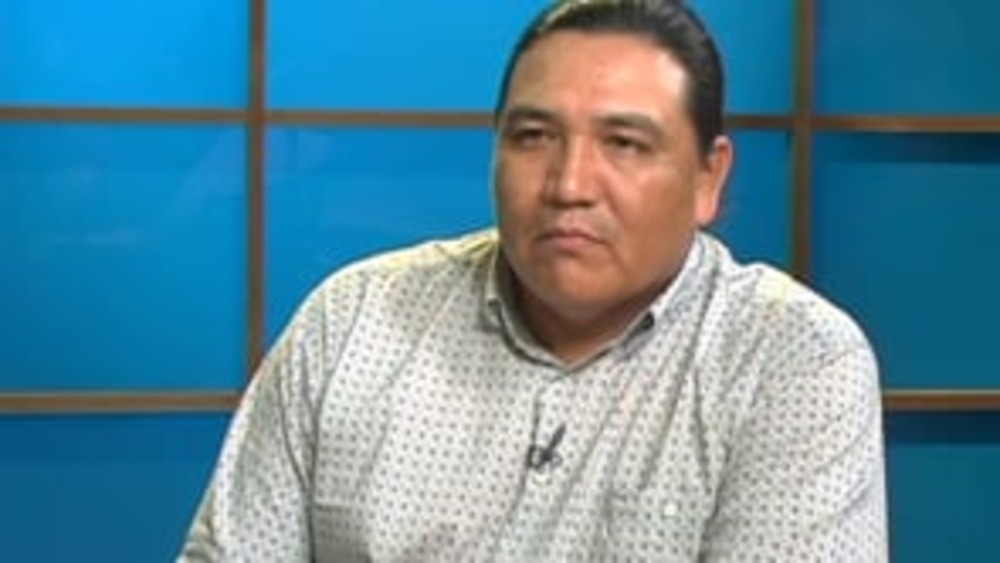
Leroy LaPlante, Jr.: Effective Bureaucracies and Independent Justice Systems: Key to Nation Building
In this informative interview with NNI's Ian Record, Leroy LaPlante, Jr., former chief administrative officer with the Cheyenne River Sioux Tribe and a former tribal judge, offers his thoughts on what Native nation bureaucracies and justice systems need to have and need to do in order to support…

John Petoskey: Tribal Sovereign Immunity and the Michigan v. Bay Mills case: What the Future Likely Holds and How Native Nations Should Prepare
In this lecture for faculty and students of the University of Arizona's Indigenous Peoples Law and Policy Program, NNI Indigenous Leadership Fellow John Petoskey provides a comprehensive background of the Michigan v. Bay Mills case currently pending before the U.S. Supreme Court and discusses what…
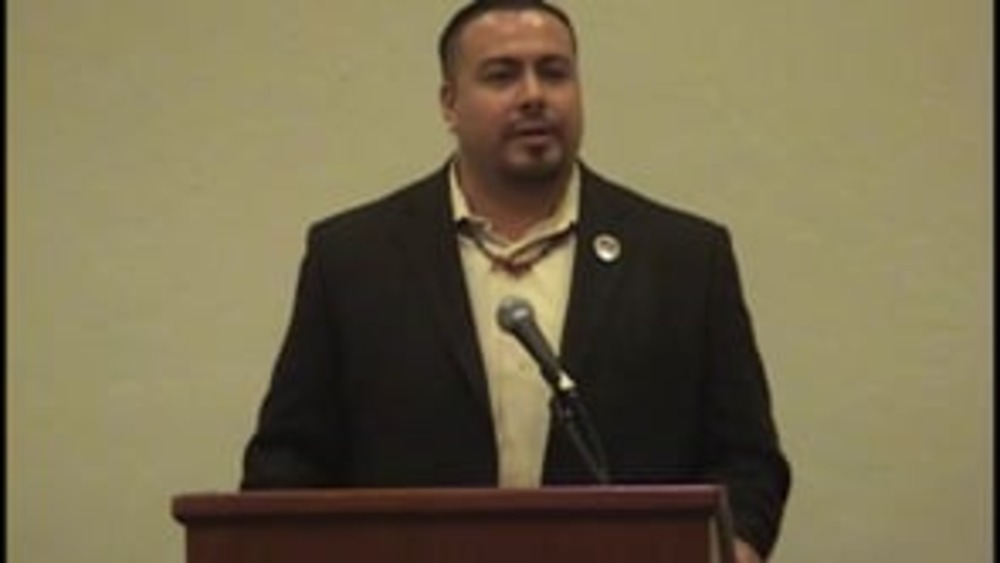
Jamie Fullmer: Taking a Strategic Approach at Yavapai-Apache Nation
Jamie Fullmer, former chairman of the Yavapai-Apache Nation, discusses how his nation developed a strategic approach to tackling its nation-building challenges during his time in office. He stresses the importance of Native nations and leaders conducting comprehensive of the state of their…
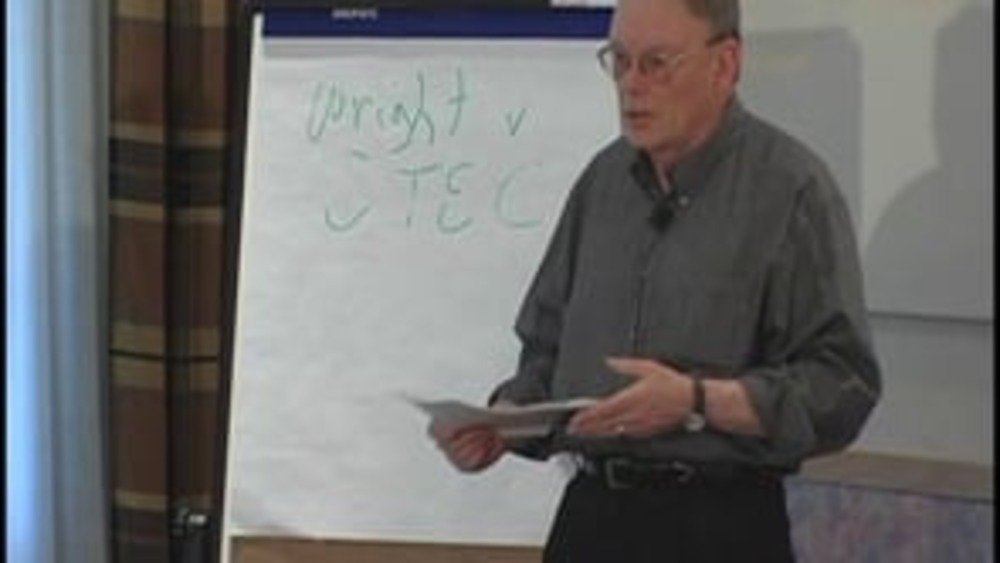
Michael Taylor: The Practical Issues of Business Development - Some Things to Consider: When to Waive Sovereign Immunity (or Not)
Tulalip Tribes' Attorney Michael Taylor explains when tribes should and should not waive sovereign immunity and why. He also discusses some effective approaches to doing limited waivers of sovereign immunity, and stresses the importance of Native nations building a track record of fair and…

From the Rebuilding Native Nations Course Series: "Test: Does Your Nation Have an Independent Judiciary?"
Professor Robert A. Williams, Jr. shares a short test to help a Native nation and its leaders and citizens determine whether or not their judicial system is truly independent.
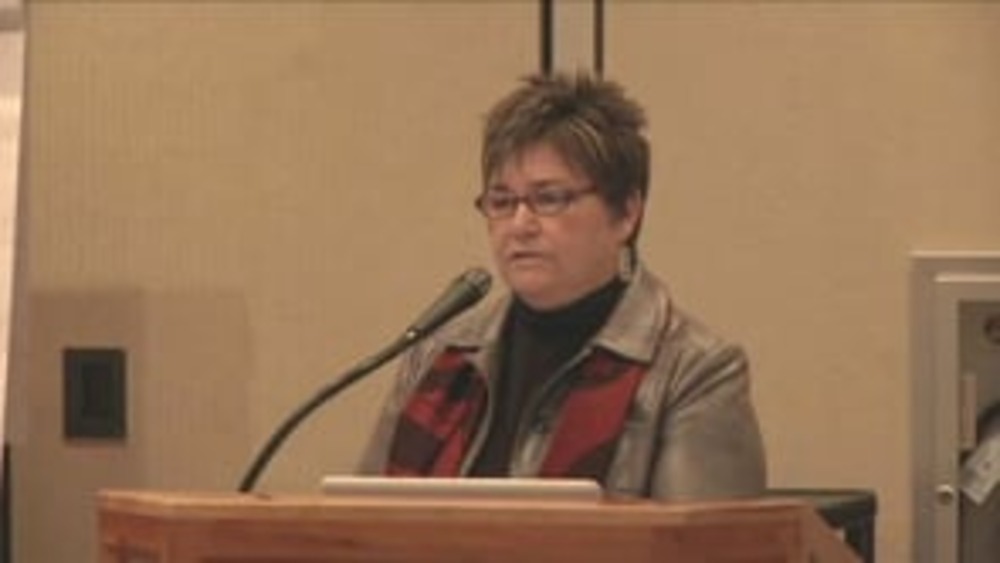
Hepsi Barnett: How Did We Go About Remaking Our Constitution?
Former staff member Hepsi Barnett of the Osage Government Reform Commission discusses the process by which the Osage Nation approached the task of developing a new constitution and system of government, and also provides the complex history that necessitated their creation. This video…
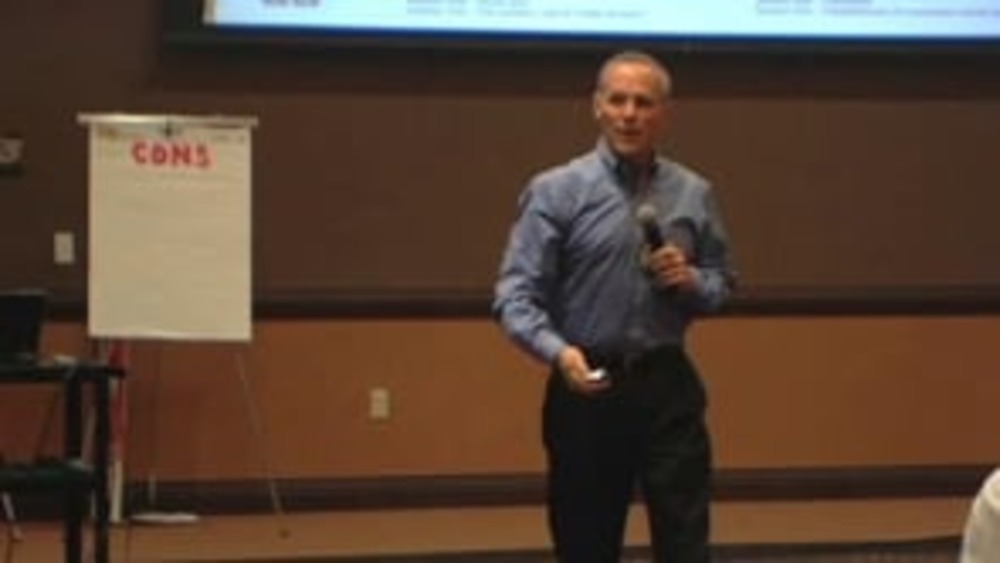
Joseph P. Kalt: Sovereignty: Your Best Tool for Development
Harvard Project on American Indian Economic Development Co-Director Joseph Kalt share some innovative ways that Native nations have exercised their sovereignty in order to foster sustainable economic and community development.
NNI Forum: Tribal Sovereign Immunity
Tribal sovereign immunity has far-reaching implications, impacting a wide range of critical governance issues from the protection and exertion of legal jurisdiction to the creation of a business environment that can stimulate and sustain economic development. Native Nations Institute (NNI) Radio…
Joseph P. Kalt: Sovereign Immunity: Walking the Walk of a Sovereign Nation
Harvard Project on American Indian Economic Development Co-Director Joseph Kalt discusses what sovereign immunity is and what it means to waive it, and share some smart strategies that real governments and nations use to waive sovereign immunity for the purposes of facilitating community and…
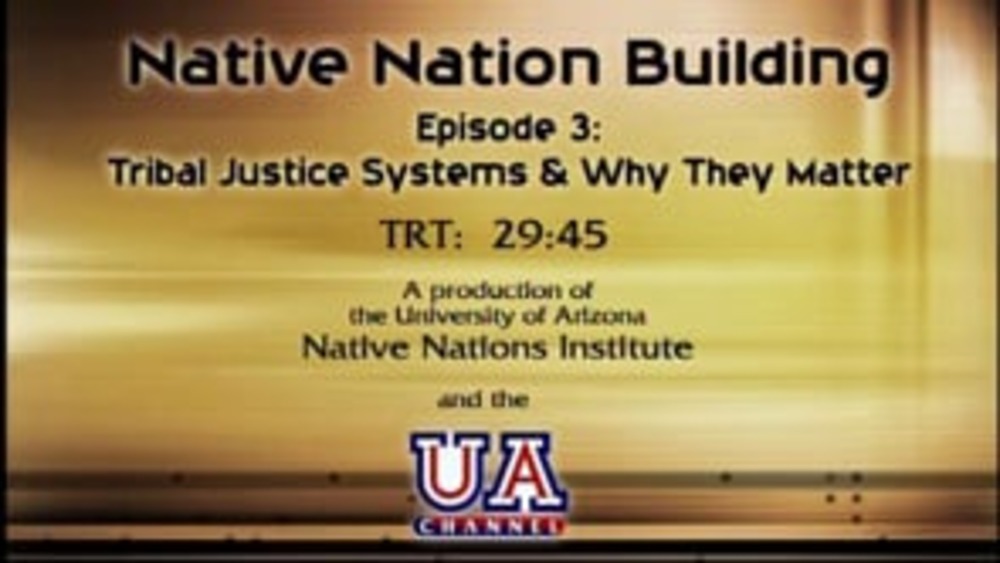
Native Nation Building TV: "Why the Rule of Law and Tribal Justice Systems Matter"
Guests Robert A. Williams, Jr. and Robert Yazzie discuss the importance of having sound rules of law and justice systems, and examine their implications for effective governance and sustainable economic development. They explore these issues and their role in creating a productive environment that…

BIA Head Kevin Washburn Speaks to ICTMN About Bay Mills and the Need to Resolve Water Rights
Interior Secretary — Indian Affairs Kevin K. Washburn was in New York City in September as the historic Peoples’ Climate March and the United Nations General Assembly opened its 69th regular session with the first World Conference on Indigenous Peoples, where he added to our excitement here at…

The Bay Mills Case: An Opportunity for Native Nations
On May 27th, the U.S. Supreme Court finally handed down its decision in the Michigan v. Bay Mills Indian Community case. The good news for Native nations is that the Court upheld the doctrine of tribal sovereign immunity, opting not to carry out any of the doomsday scenarios many suggested could…

Will the Supreme Court Use Bay Mills Case to Blow Up Tribal Sovereignty?
As regular visitors to this site and other Indian country media outlets no doubt have seen in recent weeks, Native nation leaders, tribal attorneys, and federal Indian law practitioners alike are gravely concerned about a case currently pending before the Supreme Court: State of Michigan v. Bay…

How Tribes Can Prepare for Tribal Sovereignty Blow From Supreme Court
In the first part of this two-part series, we provided a short history of the upcoming U.S. Supreme Court case State of Michigan v. Bay Mills Indian Community, discussed its relevance to the sustainability of the legal doctrine of tribal sovereign immunity, and detailed two potential outcomes of…

The Bay Mills Buck Stops With NIGC
With a case of potentially catastrophic consequence for Indian country now pending before the U.S. Supreme Court, all of the players who can possibly prevent the disaster are either sitting on their hands or pointing fingers. The National Indian Gaming Commission has failed to act, citing a…
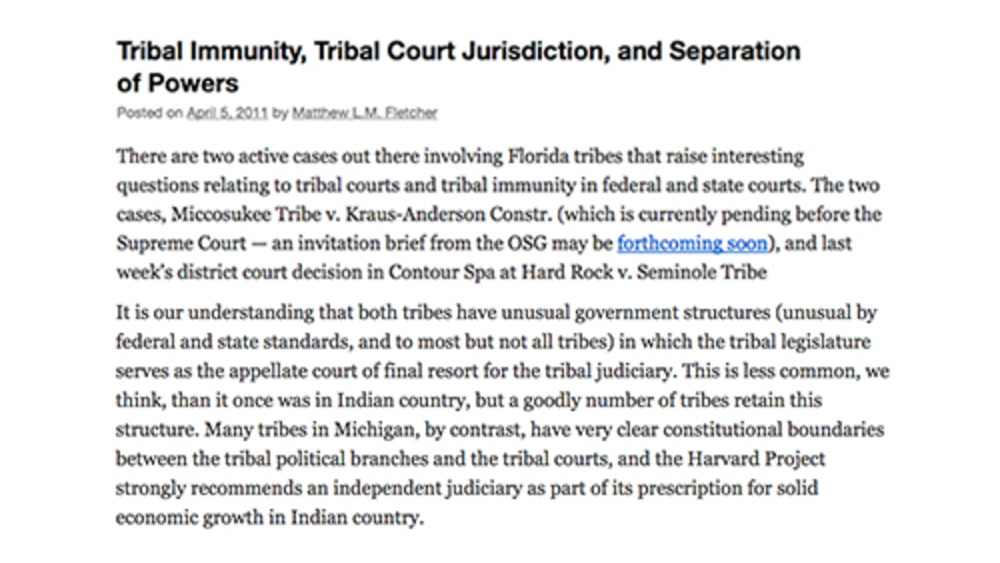
Tribal Immunity, Tribal Court Jurisdiction, and Separation of Powers
There are two active cases out there involving Florida tribes that raise interesting questions relating to tribal courts and tribal immunity in federal and state courts. The two cases, Miccosukee Tribe v. Kraus-Anderson Constr. (which is currently pending before the Supreme Court – an invitation…

Advancing the State-Tribal Consultation Mandate
This summer, in the face of an impending private land sale of Pe’Sla, a Lakota/Dakota/Nakota Indian sacred site in the Black Hills, the United Nations Special Rapporteur on the Rights of Indigenous Peoples, S. James Anaya, directed that authorities in South Dakota “engage in a process of…
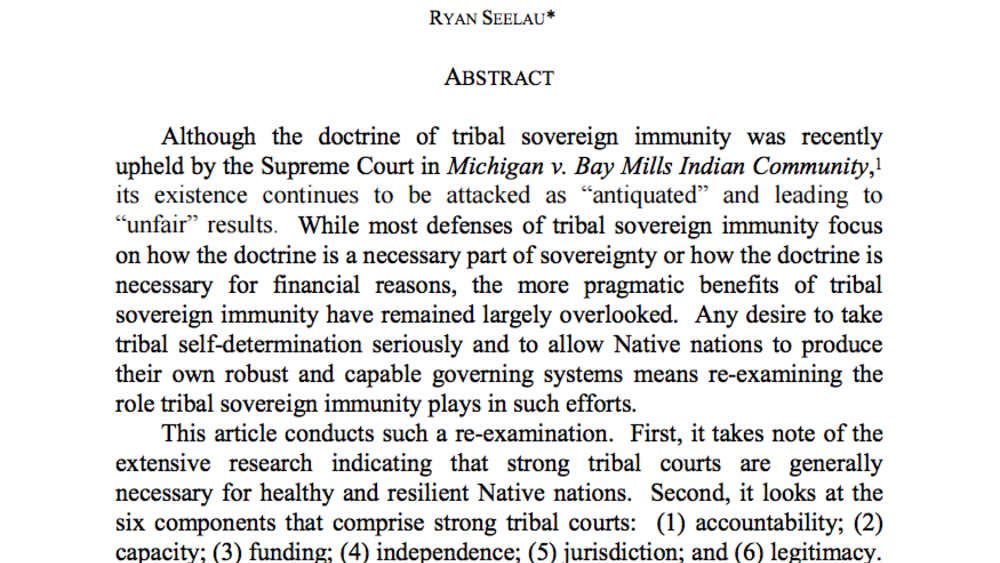
In Defense of Tribal Sovereign Immunity: A Pragmatic Look at the Doctrine as a Tool for Strengthening Tribal Courts
Although the doctrine of tribal sovereign immunity was recently upheld by the Supreme Court in Michigan v. Bay Mills Indian Community, its existence continues to be attacked as antiquated and leading to unfair results. While most defenses of tribal sovereign immunity focus on how the doctrine is a…
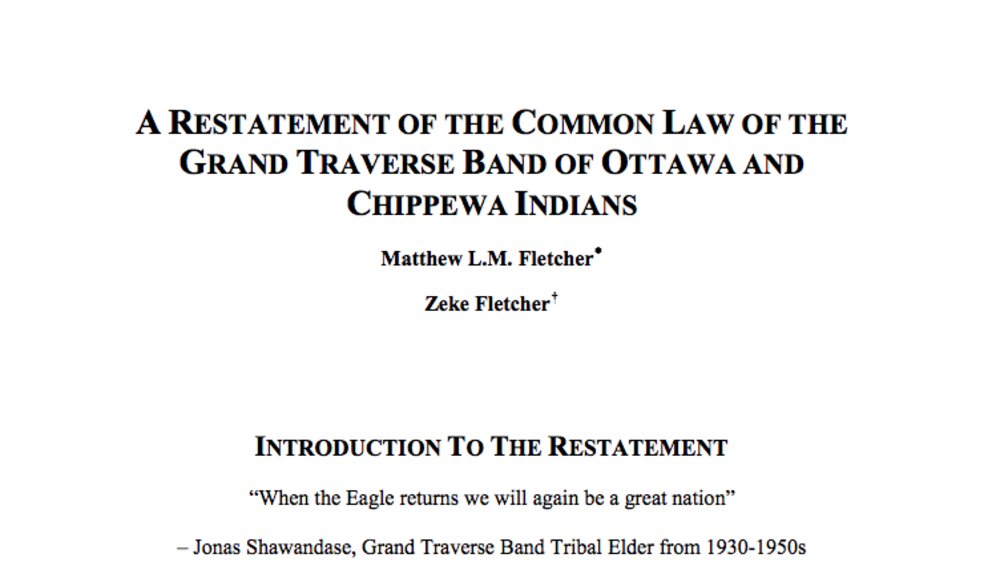
A Restatement of the Common Law of the Grand Traverse Band of Ottawa and Chippewa Indians
From 1872 until 1980 the United States government continually refused to recognize the sovereign status of the Grand Traverse Band of Ottawa and Chippewa Indians (GTB). For example, citizens of the Grand Traverse Band unsuccessfully attempted to regain this government-to-government relationship in…
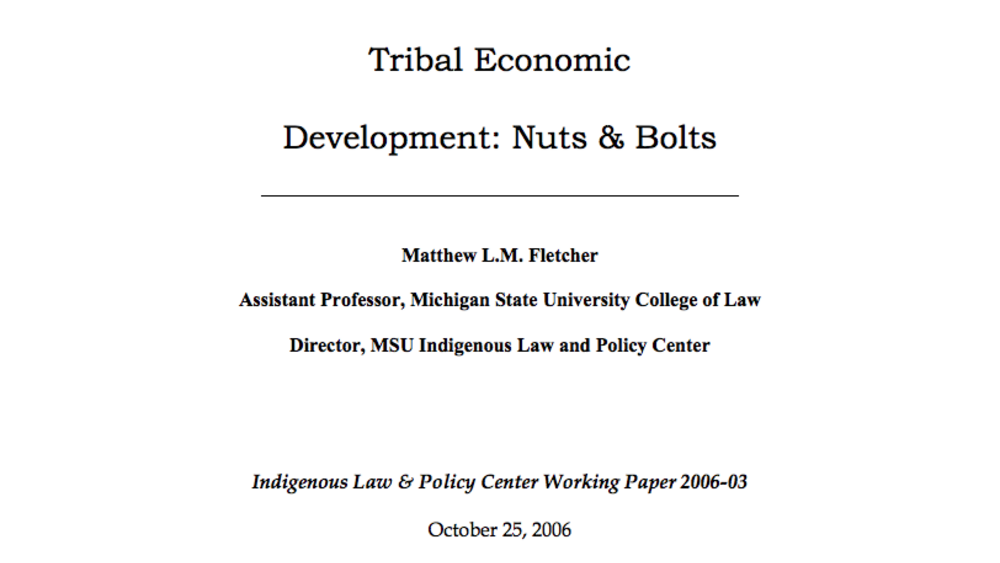
Tribal Economic Development: Nuts & Bolts
Tribal economic development is a product of the need for Indian tribes to generate revenue in order to pay for the provision of governmental services. Unlike the federal government or states, Indian tribes – in general – have no viable tax base from which to generate revenues sufficient to…
